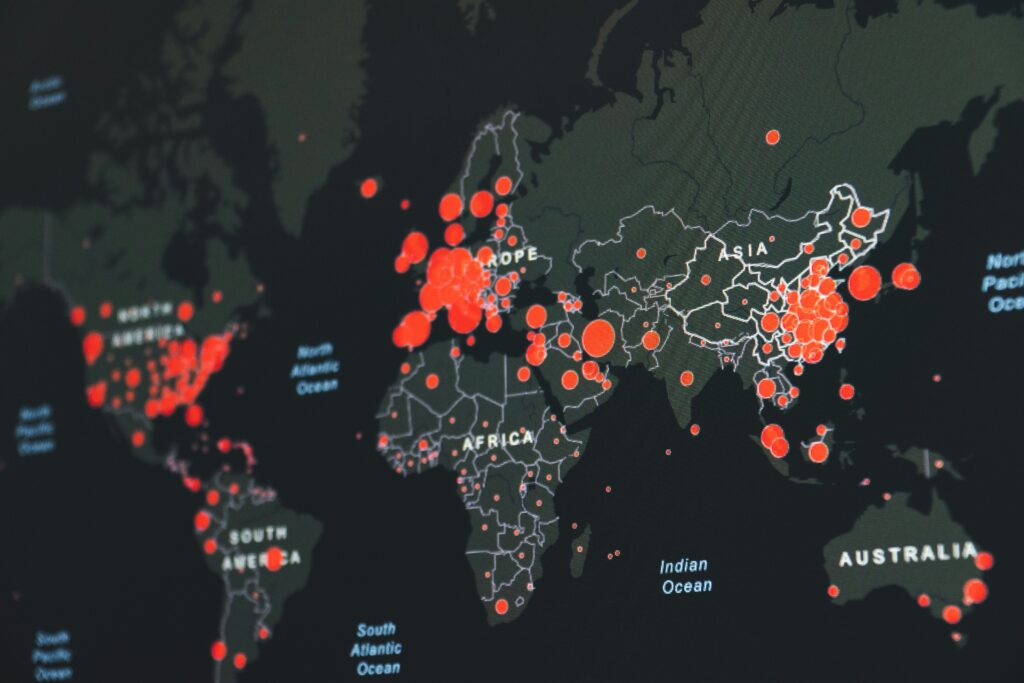In the wake of global health crises such as the COVID-19 pandemic, the importance of a coordinated, multi-sectoral response has never been more apparent. The complexity and scale of modern pandemics demand more than just healthcare solutions; they require the combined efforts of various sectors, including public health, technology, education, and government. This blog explores the concept of cross-sector collaboration as a fundamental strategy for enhancing pandemic response and prevention, offering a holistic approach to managing health crises that threaten global stability and security.
Integrating Public Health and Technology
One of the most critical collaborations in pandemic response involves integrating public health expertise with technological innovation. The rapid spread of infectious diseases in densely populated urban areas presents a significant challenge that technology can help mitigate through enhanced surveillance, data analytics, and communication systems.
For instance, digital contact tracing apps have been developed to monitor disease spread and notify individuals of potential exposure. When used effectively, these tools can significantly slow the transmission of viruses by informing public health decisions in real-time. However, their success depends on widespread adoption and trust in privacy safeguards, highlighting the need for cooperation between health officials, tech companies, and civil society to ensure these systems are effective and respect individual rights.
Moreover, artificial intelligence (AI) can transform pandemic forecasting and response. AI can analyze vast amounts of data from various sources, including social media, satellite imagery, and healthcare reports, to predict outbreak patterns and hotspots. This predictive capability enables governments and health organizations to allocate resources more efficiently and enact preventative measures proactively. However, the effectiveness of AI tools relies on the availability of high-quality data, underscoring the necessity for cross-sector collaboration in data collection and sharing.
Educational and Governmental Roles in Pandemic Preparedness
Beyond technology and healthcare, education is pivotal in pandemic response and prevention. Educational institutions are venues for potential virus transmission and platforms for public health education. Schools, universities, and vocational training centers can disseminate vital information about hygiene practices, vaccination, and disease prevention, shaping public behavior and community resilience.
Furthermore, the collaboration between education and government sectors can facilitate the development of training programs for public health professionals and emergency responders. Ideally updated and practiced regularly, these programs are crucial for building a robust workforce capable of effectively handling pandemic situations.
Government involvement is indispensable across all aspects of pandemic preparedness and response. Policymakers are tasked with the challenging job of balancing public health measures with economic and social considerations. Effective government action requires coordination with health experts to devise evidence-based strategies, with businesses to manage economic impacts, and with community leaders to ensure compliance and support from the public. Creating national and international frameworks for pandemic response, clear communication channels, and transparent decision-making processes are essential for fostering public trust and cooperation.
Strengthening International Cooperation for Global Health Security
No country can isolate itself from the global nature of pandemics. International cooperation is fundamental to preparing for and responding to health crises. This includes sharing research, resources, best practices and coordinating efforts to manage cross-border challenges such as travel restrictions and the equitable distribution of medical supplies and vaccines.
Organizations like the World Health Organization (WHO) are critical in facilitating global health cooperation. However, their effectiveness depends on the commitment and collaboration of member countries and the integration of efforts across all sectors. Building a more robust international legal framework for health emergency response and enhancing the capabilities of regional health organizations are steps toward more effective global governance of pandemic risks.
Conclusion: Embracing a Multifaceted Approach to Pandemic Challenges
The complexities of modern pandemics require a multifaceted approach that transcends traditional sectoral boundaries. Cross-sector collaboration is beneficial and necessary for developing comprehensive strategies that address the health, economic, and social dimensions of pandemic crises. By fostering partnerships across public and private sectors and enhancing international cooperation, the global community can build more resilient systems capable of withstanding future health emergencies. The lessons learned from current and past pandemics must inform ongoing efforts to refine collaborative practices, ensuring a safer, healthier future for all.

